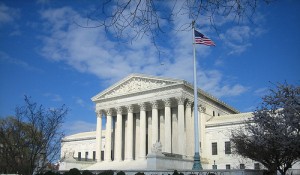 Earlier this year, GAP's international coalition partner across the pond – Public Concern at Work (PCaW), based in London – launched an ambitious effort. The good government group put together a Whistleblowing Commission
– a group of experts (including noted Olympus whistleblower Michael
Woodford) brought together to examine the current arrangements and
protections for British whistleblowers, and make recommendations for
improvement, nationwide.
Earlier this year, GAP's international coalition partner across the pond – Public Concern at Work (PCaW), based in London – launched an ambitious effort. The good government group put together a Whistleblowing Commission
– a group of experts (including noted Olympus whistleblower Michael
Woodford) brought together to examine the current arrangements and
protections for British whistleblowers, and make recommendations for
improvement, nationwide.This 11-month effort culminated in the Commission's report released earlier today. The in-depth analysis has been anticipated by several U.K. government agencies, and finds that "current legislation is 'not working' and immediate change is needed to ensure whistleblowers are given the confidence to speak out without fear of adverse repercussions." Further, the Commission makes 25 base recommendations for improving the state of whistleblower protections throughout British industries and the federal government (for more, see PCaW's press release).
As detailed by PCaW, significant recommendations include:
- The U.K. Secretary of State should adopt a 'Code of Practice' which would set out the principles and processes by which British employees would know their rights when speaking out wrongdoing, sans fear of retaliation (similar to many whistleblower protection laws that Americans enjoy).
- Further, that such a code be "taken into account" by the U.K. court
system when lawsuits arise, and that U.K. regulators "require or
encourage" the Code be instituted by those entities they regulate.
- British regulators themselves should "be more transparent about their own whistleblowing arrangements"
- That "specific provisions against the blacklisting of whistleblowers" be instituted, a terrible consequence to occupational free speech that GAP sees all-too-frequently.
- The "strengthening [of] anti-gagging provisions in the law."
- The "strengthening and clarifying [of] legal protection for whistleblowers."
“The Code of Practice provides a set of
standards against which organisations can be measured. The Code
provides organisations a clear road map for better whistleblowing
arrangements. Regulators need to enforce this Code and, if necessary, be
given the power to do so.
"The important new focus in this
report is on the responsibility of organisations to have specific
whistleblowing arrangements that encourage people to speak out with
confidence, knowing that they will be treated fairly and listened to and
that action will be taken. This is underpinned by a recommended Code of
Practice, that all responsible organisations should be implementing
now, and not waiting for legislation.”
Hear, hear! GAP wishes nothing but the best for PCaW to make the code
a reality in the U.K., and urges British authorities to do so without
delay.Media coverage of the Whistleblowing Commission's report can be found in CIPD, The Guardian, The Lawyer, and ITV/Daybreak.
Dylan Blaylock is Communications Director for the Government Accountability Project, the nation's leading whistleblower protection and advocacy organization.

As countless peripheral debates continue regarding ObamaCare, one of the law’s very first criticisms will be the topic of an upcoming Supreme Court decision. The nation’s highest court announced Tuesday it will hear evidence from two cases regarding the healthcare mandate requiring religious business owners to provide birth control to employees.
The high court will consider both of these cases simultaneously early next year. A decision is expected by next summer.
Both of the companies are owned by religious families who say that ObamaCare violates their First Amendment rights. In light of the 2010 Supreme Court ruling that corporations can express political opinions with the same liberty as individuals, the arguments against the contraception mandate appear to be well-grounded.
In the 10th U.S. Circuit Court of Appeals decision in favor of Hobby Lobby, the court also found that a 1993 law broadly defining freedom of religion has bearing in this ongoing debate. In the case of Conestoga, however, the 3rd U.S. Circuit Court of Appeals found that the same law did not offer protection to the company.
The Supreme Court, which earned the scorn of many conservatives upon upholding the healthcare law last year, will now decide how intrusive it may be. Instead of seeking refuge in our unambiguous constitutional rights, we now live in a society that can force individuals to violate their sacred beliefs in the name of big government.
Even he likely never imagined how prophetic his words would prove within the U.S.
–B. Christopher Agee
Have an idea for a story? Email us at tips@westernjournalism.com
Read more at http://www.westernjournalism.com/supreme-court-consider-contraception-mandate/#4QXb1bTTvZFPF5oW.99



No comments:
Post a Comment